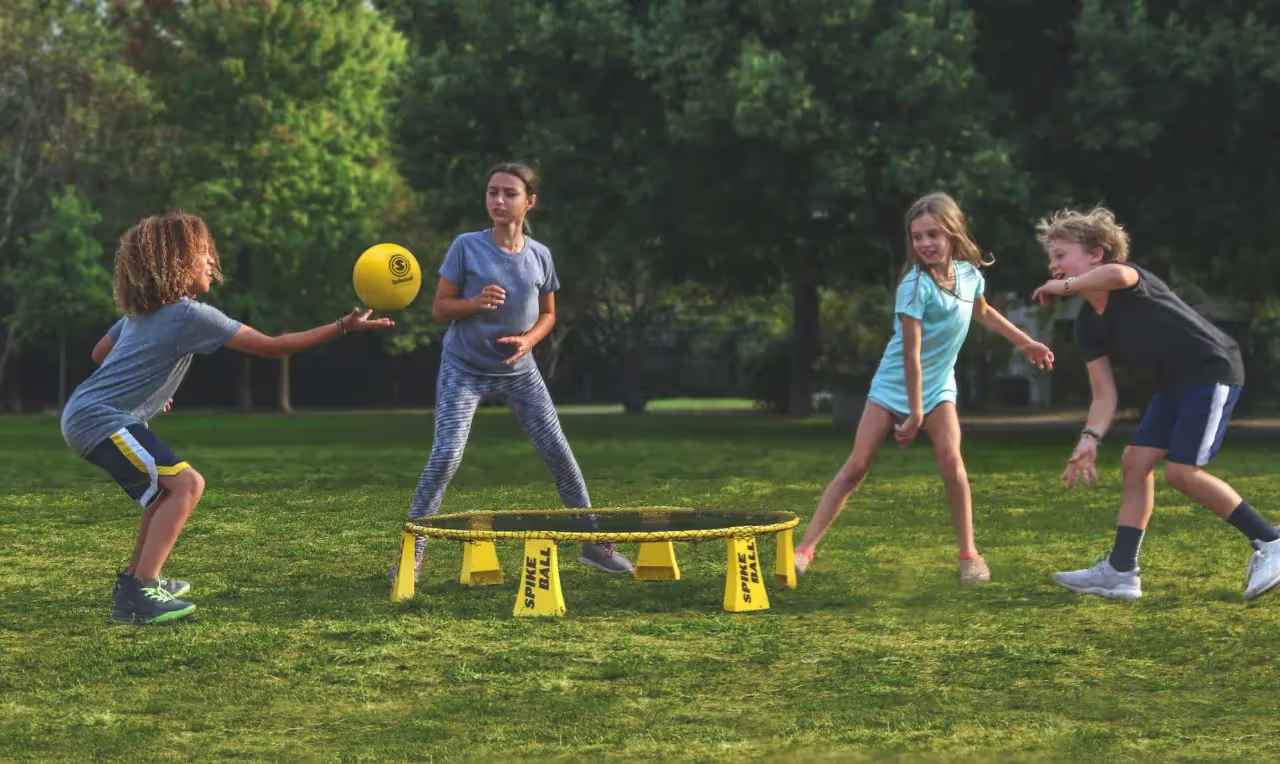Parents want the best for their children, and that often includes helping them find activities they enjoy and excel in. For some kids, that means sports....

Parents want the best for their children, and that often includes helping them find activities they enjoy and excel in.
For some kids, that means sports.
But what do you do if your child experiences anxiety around sports?
Here are a few tips to help them overcome their fear and participate in the sport they love.
If your child experiences anxiety when playing sports, there are a few things you can do to help them.
First, try to understand what might be causing their anxiety.
Is it the pressure to win?
The fear of being embarrassed or humiliated in front of others?
Once you know what's triggering your child's anxiety, you can work on addressing that.

There are several reasons why your child might be experiencing sports performance anxiety about their upcoming sports competition.
They may be worried about letting their team down or performing poorly in front of others.
They may also be concerned about getting hurt, or simply be feeling overwhelmed by the pressure to perform.
Whatever the cause, it's important to talk to your child and try to understand what is causing their anxiety; this will make it easier to help your child with sports anxiety.
Once you know the root of the problem, you can start to help them develop strategies for dealing with their anxiety.
This might involve teaching them relaxation techniques, helping them to visualize success, or simply giving them encouragement and support.
By working together, you can help your child overcome their sports anxiety and allow them to enjoy the competition.
As we mentioned earlier, the root of your child's anxiety might be something you can address.
If they're worried about letting the team down, for example, you could work on helping them develop a more positive self-image.
If they're afraid of getting hurt, you might discuss the risks and benefits of playing sports with them.
And if the pressure to perform is causing them anxiety, you could help them learn how to cope with stress.
No matter what the root of the problem is, it's important to address it as soon as possible.
This will require time and effort on your part, but it's worth it in the long run.
With your support, your child can overcome their sports anxiety and perform to the best of their abilities.
One of the most important things you can do as a parent is to provide your child with encouragement and support.
Let them know that you believe in them, and offer words of praise whenever they succeed.
If they experience a setback, don't be too critical.
Instead, help them to learn from their mistakes and move on.
By providing a supportive environment, you'll help your child feel confident and capable of overcoming their sports anxiety.
There are different ways you can convey your encouragement to your child.
Helping your child deal with sports anxiety can be a challenging task, but it's definitely worth it in the end.
With your support, they can learn to overcome their fears and perform to the best of their abilities.
So don't give up, and keep encouraging your child every step of the way.
In addition to providing encouragement and support, you can also help your child prepare for games or competitions.
This might involve
By preparing for the competition in advance, your child will feel more confident and less anxious when it comes time to compete.
And if they do experience some anxiety, they'll have the tools they need to deal with it.

It's important to encourage your child to stay positive and focus on their performance.
Don't get caught up in comparing them to others, or dwelling on mistakes they make.
Some strategies to introduce this idea are:
Instead, help them to focus on their own strengths and the things they can control.
This will help them stay calm and confident under pressure, and perform to the best of their abilities.
Remember, other parents might also be asking themselves how they can help their child with sports anxiety.
Be sure to reward your child for their accomplishments, both big and small.
This could involve anything from a simple pat on the back to taking them out for ice cream after a game.
Rewards are a great way to show your child that you're proud of them, and they can help motivate them to continue working hard.
So be sure to use them frequently, and mix things up so your child doesn't get bored.
If the anxiety is proving to be too much for your child to handle on their own, it might be a good idea to seek professional help.
This could involve meeting with a therapist or counselor who can help your child deal with their anxiety in a safe and healthy manner.
It's important to remember that there is no shame in seeking help and that doing so is a sign of strength.
So if you feel like your child could benefit from professional assistance, don't hesitate to seek it out.
This could be a promising step in the right direction when you say "how can I help my child with sports anxiety?"
So, how can I help my child with sports anxiety?
There are several things you can do to help your child deal with sports anxiety.
This might include providing encouragement and support, helping them prepare for games or competitions, and encouraging them to stay positive and focus on their performance.
Each of these tips can help your child manage their anxiety and perform better when playing sports.
By addressing the root of the problem and helping them prepare for games, you can give your child the best chance of succeeding.
If they experience any setbacks, encourage them to stay positive and focus on their own performance.
Finally, be sure to reward your child for their accomplishments, both big and small.
With a little bit of help, your child can overcome sports anxiety and perform at their best.
Yes, Medicaid provides insurance coverage for therapy services specifically designed to help individuals struggling with anxiety, depression, and other mental health conditions.
Other activities which have been found helpful in reducing both immediate feelings of anxiousness and long-term anxieties associated with chronic disorders include yoga, journaling, nature walks, art therapy, volunteering, and other low-stress activities. Additionally, developing a healthy lifestyle incorporating adequate sleep, physical activity, and nutritious meals can help reduce overall stress levels.
To reduce your anxiety, you can practice relaxation techniques such as deep breathing, progressive muscle relaxation, guided imagery, and mindfulness practices. Additionally, regular exercise has been found to be beneficial in managing stress and improving mental health.
Ignoring anxiety can exacerbate symptoms and make it more challenging to manage over time. This can result in a negative impact on your personal, professional, and social life, leading to feelings of isolation and even depression.
Addressing anxiety is crucial because it can significantly impact your quality of life and overall well-being. Left untreated, anxiety can lead to more severe mental health issues, relationship problems, and difficulty functioning in daily life.
It's important that you feel comfortable discussing personal matters with your therapist in order to open up and get more out of therapy sessions; therefore finding someone who meets certain criteria like experience level, expertise areas, and personality is key when selecting a therapist who can give meaningful feedback about how best handle issues related to anxiety or other mental health concerns.